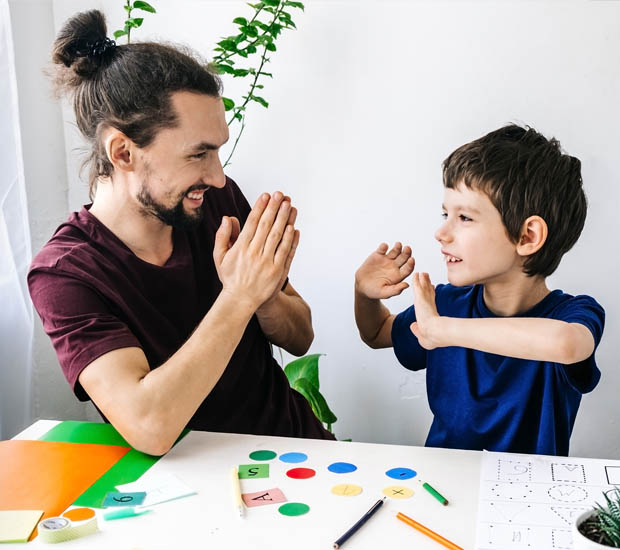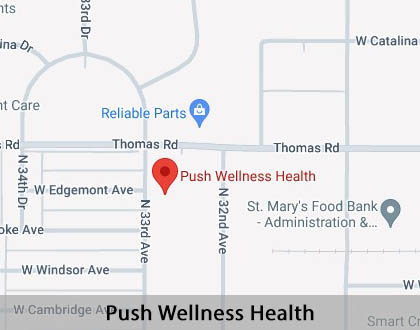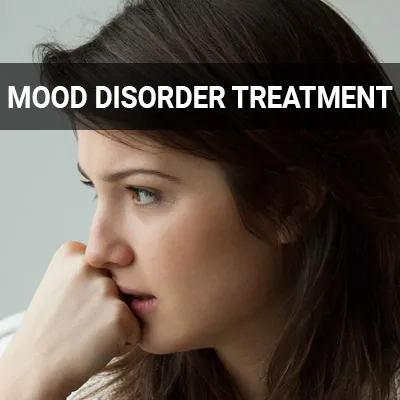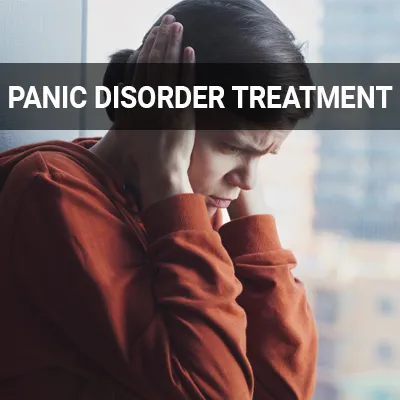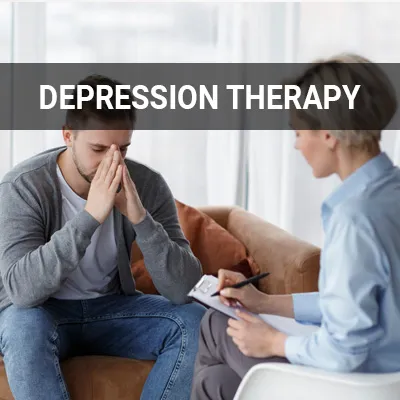Play Therapy Phoenix, AZ
Play therapy is an increasingly popular technique that helps children better understand and communicate their feelings and emotions. This type of child-centered therapy allows children to hone their skills and resolve trauma or other mental health-related issues and conditions through their natural development. We understand that not all children have the ability or capability to play freely, but that is how they learn and grow best. Play therapy helps them developmentally, socially, emotionally, physically, and mentally. Our clinic provides services for children, adolescents, adults, and seniors. We have specialized clinicians experienced in working with each age group.
We offer a variety of Youth Behavioral Outpatient Services, including play therapy. Play therapy is available at Push Wellness Health in Phoenix and the surrounding area. Our team can help you and your child learn the many ways play therapy can improve their mental and physical health. Call us today at (480) 737-4658 to schedule an appointment or learn more about our services.
What is Play Therapy?
Play therapy is defined by the Association for Play Therapy (APT) as "the systematic use of a theoretical model to establish an interpersonal process wherein trained play therapists use the therapeutic powers of play to help clients prevent or resolve psychosocial difficulties and achieve optimal growth and development." Play therapy resembles counseling for adults as it helps children express their feelings through their natural development.
Playing should be a natural and regular phenomenon for children. Mental health specialists consider the action of play a child's first innate language, in which they elevate their spirit and expand their self-expression. Play therapy allows children to express their feelings naturally and helps practitioners learn their emotional or social skills deficits. Through play therapy, children also learn adaptive behaviors as it promotes cognitive development to provide a corrective emotional experience necessary for healing. Examples of play therapy practices include:
- Arts and crafts
- Blocks and construction toys
- Creative visualization
- Dance and creative movement
- Dolls, action figures
- Musical play
- Puppets, stuffed animals, and masks
- Role-playing
- Storytelling
- Toy phones
- Water and sand play
“Play therapy resembles counseling for adults as it helps children express their feelings through their natural development.”
Benefits of Play Therapy
The primary goal of play therapy is to allow children to express themselves through natural behavior. This can help them work through stress or trauma as well as improve their emotional, mental, physical, and social capabilities. Play therapy offers a plethora of benefits, including helping children:
- Become more responsible for behaviors and develop more successful strategies
- Cultivate empathy and respect for the thoughts and feelings of others
- Develop new and creative solutions to problems
- Develop respect and acceptance of self and others
- Develop self-efficacy and thus a better assuredness about their abilities
- Learn new social skills and relational skills with family
- Learn to experience and express emotion
Aside from these, children typically gain individual advantages from seeking and undergoing play therapy. We continually track patients' progress throughout their time with us and discuss their shortcomings and achievements with parents as we move along.
“The primary goal of play therapy is to allow children to express themselves through natural behavior.”
The Play Therapy Process
The play therapy process follows four stages: Initial/Exploratory, Resistance/Negative Reaction, Growing/Work, and Termination.
Initiation/ExploratoryIn the first stage, we focus on building a relationship with the child, fostering a safe and comfortable environment in which they feel they can trust their therapist.
Resistance/Negative ReactionThe second stage focuses on pushing through their difficulties and encouraging their abilities. Resistance and negative reactions often occur during this stage, which is completely normal.
Growing/WorkThe third stage revolves around the child's personal growth and readiness to put in the work discussed and taught during the first two stages. This is where they learn, heal, step out of their comfort zone, and make changes.
TerminationThe final stage is apparent when the child consistently demonstrates the skills they learned with ease and their behavioral and emotional needs become stable in various environments. During this stage, sessions become spaced out until the child is ready to continue what they learned in play therapy on their own.
“The play therapy process follows four stages: Initial/Exploratory, Resistance/Negative Reaction, Growing/Work, and Termination.”
Check out what others are saying about our therapy services on Yelp: Play Therapy in Phoenix, AZ
The Focus of Play Therapy
Play therapy aims to help children express themselves or their emotions through play in a safe and comfortable environment. Play therapy also addresses mental health-related issues in children suffering from a condition or trauma. Play therapy can effectively treat various conditions, including Autism, attention deficit hyperactivity disorder (ADHD), depression, anxiety disorders, post-traumatic stress disorder, and physical, emotional, and sexual trauma or abuse.
The number of sessions and duration of each session largely depend on the patient's case. Each session typically lasts about 30 to 50 minutes, with most children requiring around 20 sessions to resolve issues related to their condition. Some patients may need fewer sessions and can continue implementing the practices they learn at home and school. Others with more complex, serious, or ongoing conditions may require more sessions to resolve their issues. Our primary focus is on helping children overcome their fear of expression and learn essential skills through the power of play.
“Play therapy aims to help children express themselves or their emotions through play in a safe and comfortable environment.”
Questions Answered on This Page
Q. What are the benefits of play therapy?
Q. What is the process of play therapy?
Play Therapy Outcome and Everyday Life
Our Youth Behavioral Outpatient Services are designed to help our children and youth in their everyday lives. Throughout the child's journey in play therapy, their growth and development become apparent in their daily life. They learn to identify with and express their feelings and emotions, improve their communication skills, better regulate their behavior, expand their problem-solving skills, play therapeutically, and live happier, healthier lives.
Play therapy also helps the child's parents, siblings, and other close persons learn how to play and otherwise communicate with them. We may involve parents during some of the child's therapy sessions to help with the healing process. Working together often yields the best results. However, if parents or the child become hindered by their involvement in any way, we will do our best to work with the child alone. We can also make alterations to the treatment plan whenever necessary.
“Throughout the child’s journey in play therapy, their growth and development become apparent in their everyday life.”
Frequently Asked Questions
Q. How does play therapy work?
A. Play therapy promotes stress and trauma relief through natural play. We allow children to express themselves and their emotions through play - whether that be with a toy, drawing, or building something. Over time, the child learns communication and problem-solving skills that relate to the issues they face and new problems they may struggle with later in life.
Q. Who practices play therapy?
A. Play therapists are specialized mental health professionals with specific training, education, and experience in the practice of play therapy. These professionals have a Master’s or Doctorate degree in a mental health field focusing on the treatment of children. Mental health professionals may also earn the Registered Play Therapist (RPT), Registered Play Therapist-Supervisor (RPT-S), or School Based-Registered Play Therapist (SB-RPT) credentials¹ conferred by the Association for Play Therapy (APT).
Q. What is the family’s role in play therapy?
A. Families often play a big role in treating any family member, especially children. Many mental health issues and traumas result from family-related situations, such as divorce. We may involve parents during the child’s therapy sessions and recommend various practices at home. In rare cases, however, the child may be better suited to undergo therapy alone. In this case, we will discuss the parents’ supplemental involvement outside therapy sessions.
Q. Who can benefit from play therapy?
A. Everyone can benefit from play therapy, and play is commonly used in counseling for teens and adults as well. However, play therapy is especially beneficial for children 3 to 12 years of age. Recently, professionals have been using play therapy to help infants and toddlers.
Q. What type of “play” will be involved in my child’s therapy sessions?
A. The type of play involved depends on the patient's preference and is completely child-centered. Play therapy can be direct or non-direct. Directive play therapy involves the therapist guiding the child through activities they deem appropriate for their age and the issue being resolved. Non-directive play therapy is child-led in an uncontrolled environment in which the child decides what they want to play with and expresses themselves through the activities.
Start Feeling Better – Visit Us Today
By visiting us as soon as possible, our team can help get you the professional treatment you need. Instead of waiting around and allowing the symptoms to get worse, we can provide you with treatment options.
Definitions
Call Us Today
Play therapy is often essential to improve a child's mental health. Playing is a natural part of a child's development and can greatly enhance their social and emotional skills. Call us today at 480-737-4658 to schedule an appointment or learn more about our services.
Helpful Related Links
- American Psychiatric Association (APA). American Psychiatric Association (APA). 2024
About our business and website security
- Push Wellness Health was established in 2022.
- We accept the following payment methods: American Express, Check, Discover, MasterCard, and Visa
- We serve patients from the following counties: Maricopa County
- We serve patients from the following cities: Phoenix, Tolleson, Sun City, Paradise Valley, Gilbert, Chandler, Tempe, Mesa, Queen Creek, Scottsdale, and Glendale
- Norton Safe Web. View Details
- Trend Micro Site Safety Center. View Details
Back to top of Play Therapy
